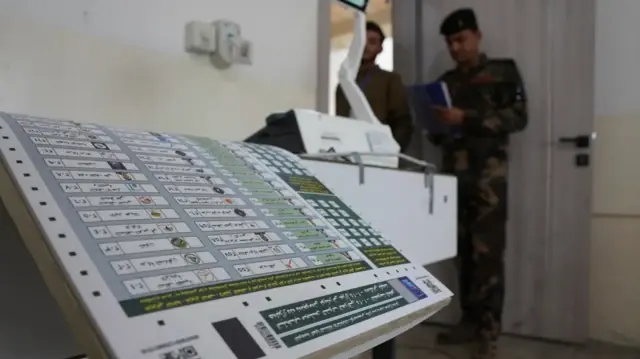Iraq condemns Iranian 'interference' ahead of parliamentary elections

Iraq condemns Iranian 'interference' ahead of parliamentary elections The diplomatic rebuke comes as millions of Iraqis prepare to vote in Tuesday's legislative elections.
Iraq has issued a strong diplomatic protest against Iran following what Baghdad characterizes as provocative statements from Tehran regarding Iraq's parliamentary elections. The Iraqi Foreign Ministry condemned Iranian comments made on the eve of the national vote, asserting that such remarks constitute unacceptable interference in Iraq's internal political affairs as citizens prepare to elect a new parliament.
Diplomatic Tensions
The diplomatic friction emerged after Iranian Foreign Ministry spokesman Esmaeil Beghaei commented on US involvement in Iraqi politics, stating that Iraq rejects foreign interference in its electoral process. The Iraqi Foreign Ministry responded by declaring these statements "provocative and represent a clear and unacceptable interference in Iraqi internal affairs." Iraqi officials emphasized that their country's electoral process represents "a purely national matter that is subject to the will of the Iraqi people and its constitutional institutions exclusively."
Sovereignty Principles
The Iraqi statement reiterated Baghdad's commitment to maintaining "balanced relations with its neighbors, based on the principle of mutual respect for sovereignty and non-interference in the internal affairs of states." The ministry further stressed that preserving positive regional relations requires "strict adherence to these principles and avoiding any statements or positions that could infringe upon Iraq's sovereignty or interfere in its internal affairs," signaling clear boundaries for diplomatic discourse with Tehran.
Electoral Context
According to Iraq's electoral commission, 7,743 candidates including 2,247 women are competing for parliamentary seats in Tuesday's election. The current parliament, dominated by Shia political parties and blocs, began its four-year term in January 2022 and will conclude in January 2026. Iraq's government structure traditionally distributes leadership positions among major sectarian groups, with the presidency allocated to Kurds, prime ministry to Shias, and parliamentary speakership to Sunnis to ensure broad representation.
Reklam yükleniyor...
Reklam yükleniyor...







Comments you share on our site are a valuable resource for other users. Please be respectful of different opinions and other users. Avoid using rude, aggressive, derogatory, or discriminatory language.